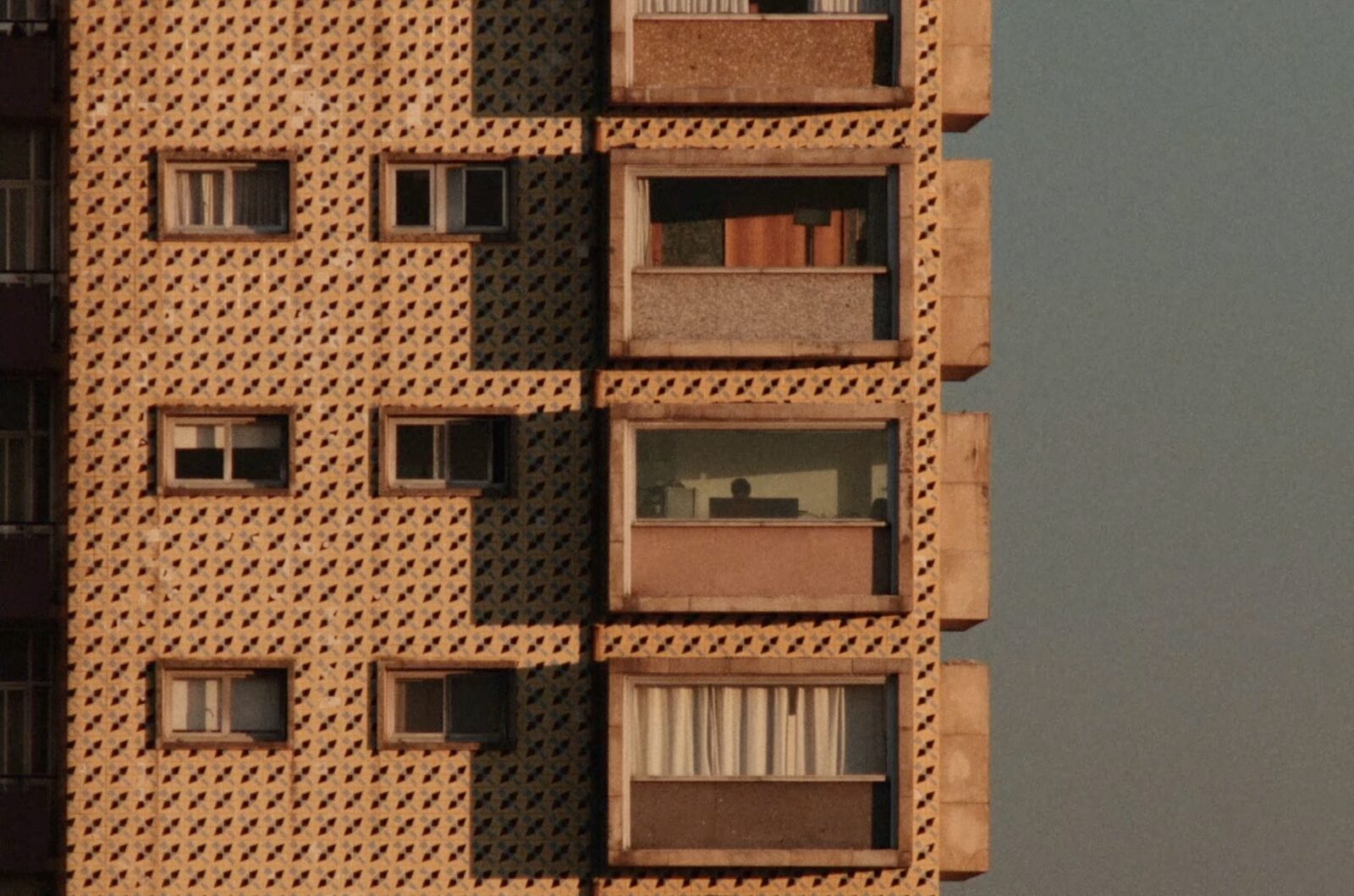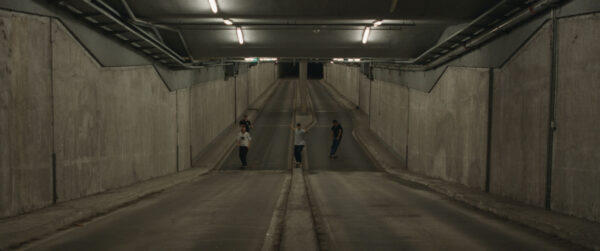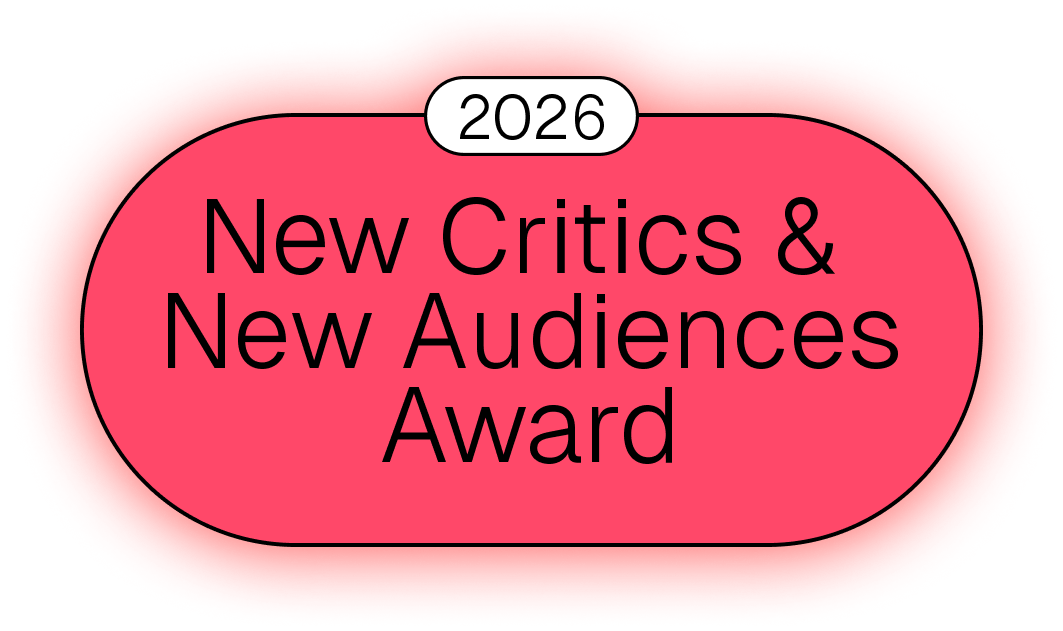Confessions Of A City Dweller
2nd Person
Rita Barbossa presents a woman in need for real connection and underlines the right to embrace the pleasures of life without shame.

In the opening scene, a mechanical crane picks through what seems to be—as it is closely framed, it’s hard to specify—a sea of garbage. A young man starts talking in voice-over as if reading his intimate diary over a phone. He mentions a visit to his aunt that substantially impacted him, making him take on a life-changing decision to reduce his “emotions to a minimum”. This beginning of 2nd Person, written, produced, and directed by Rita Barbossa, firmly sets an existentialist atmosphere reminiscent of the character of Meursault in Albert Camus’ famous novel The Stranger. This film, however, leads down a different narrative path.
After hearing a couple of heavy sighs and watching disjointed shots of parts of buildings, the voice-over narration is taken over by a tired older woman who, although it is not stated, could be identified as the young man’s aunt. She is a window observer, one of those recognisable figures (often older women) that decorate city buildings across countries and nations with curious and judgmental daylong stares, keeping a godlike outlook on whatever is within their physical space of gaze. But unlike those stone-like faces that do not reveal any intimacy of the city’s window voyeurs, we are presented with a character who loves her neighborhood and its people. Yet, the moral rules of this society have made the woman bury her true personality and desires. As the older woman continues to talk about her first sexual encounter with another woman that she, by chance, connected with through a newspaper ad, her story becomes more intimate. This confession draws our attention to the images accompanying the vocal narration; these two cinematic elements come closer together in our focused search for the person confessing. Can she be found in the small figures we observe, who are folding the laundry or cleaning the window?
An outburst of honest sexual desire in a conservative, religious society is always an act of bravery. This anonymous woman tells it in a calm, proud, and nostalgic voice, implying she would like to have had more of the once-found freedom. Such small twists in narration constantly impact our reflections on the finely edited images. For instance, when the woman says she wishes for more such experiences, the collaged city becomes a place of search, a hunting ground for inhibited desires. As the story progresses, more of the city sounds, such as telephones ringing, join the conversation. Lights and shadows of the mostly decrepit building facades accompany the vivid memory of an erotic episode of which even the narrator herself is unsure of some particular details. The realms of memories are slippery; maybe the desired fantasy has taken over reality. Could she be only playing us for attention? If so, she does it with conviction.
However, the end of the film comes across as quite curious, considering the investment of belief given to the main female character only to be awakened again by the soothing voice of a hypnotic therapist, reminiscent of the young man’s voice who opened the film. It feels strange to enter a new storyline that simply connects both characters and gives it a dreamlike, therapeutic context. Maybe we were experiencing someone’s multivocal fantasies?
2nd Person is about the human need for real connection and deeper emotions and the right to embrace the pleasures of life without shame. Stylistically, the entire film is set upon a direct disconnection between the unstaged visual scenes and acted voice-overs, somewhat having a formal feel of a film essay. Still, it works more on the emotional level of a character-driven narrative. While the narrator’s speech dominates the viewer’s concentration, visually, we are put in a place of illusion between the scenes being a series of subjective shots of the narrator on the one hand and associative shots that allow us to mentally roam and make free-floating connections with what is said. A carefully crafted soundscape is the third narrative element. Not only are the voices of the actors emotionally very well directed (especially the superb acting by Márcia Breia), giving us a whole variety of feelings through a quiet talk with only subtle intonations; also the atmosphere that is built upon an amalgam of (often unidentified) background sounds of the humming city is subconsciously gripping in its fragile frequencies.
The poeticism of 2nd Person lingers on long after watching it, as the shots of the neighbourhood can easily be visually and mentally transferred onto the prosaic world right outside our windows, tempting us to become more conscious narrators of our own lives and surroundings. That’s what good cinematic poetry does: it opens up worlds and words, voices, and visuals. Considering the original title of the film (2a Pessoa), the author of this text automatically associates it with Fernando Pessoa, a name that is a synonym of Portuguese poetry. I guess nomen is omen in this case.






There are no comments yet, be the first!